Key words: immigration,
The issue of immigration in Argentina Argentina  building our nation. However, it is possible to think that if the waves of immigration of the first half of the 20th century were so successful and left such a positive impression in our social imaginary, this was because the Argentine State and the ruling elites were already strong enough and well-prepared to handle the tension and risks that any important immigration movement implies. But that hadn’t always been the case.
building our nation. However, it is possible to think that if the waves of immigration of the first half of the 20th century were so successful and left such a positive impression in our social imaginary, this was because the Argentine State and the ruling elites were already strong enough and well-prepared to handle the tension and risks that any important immigration movement implies. But that hadn’t always been the case.
 building our nation. However, it is possible to think that if the waves of immigration of the first half of the 20th century were so successful and left such a positive impression in our social imaginary, this was because the Argentine State and the ruling elites were already strong enough and well-prepared to handle the tension and risks that any important immigration movement implies. But that hadn’t always been the case.
building our nation. However, it is possible to think that if the waves of immigration of the first half of the 20th century were so successful and left such a positive impression in our social imaginary, this was because the Argentine State and the ruling elites were already strong enough and well-prepared to handle the tension and risks that any important immigration movement implies. But that hadn’t always been the case.The problem of immigration (at least from the point of view of the ruling classes) is always the risk of social, cultural or political instability. This was made evident in Argentina La Prensa in which the Italian community was called to celebrate the (quite recent) Unification of Italy:
“Being far from your Motherland, you must keep the festivity uncorrupted, celebrate the glory and cultivate the love to deserve being called her children. So be willing to answer to these sacred duties celebrating September 20th.”
 Bertoni’s thesis is that national celebrations together with an emphasis on national history and on patriotic feeling were consciously introduced in schools by this time as an ideological instrument to control and lessen the potentially harmful impact of foreign nationalism [2]. In this sense she quotes an 1887 regulation by the CNE (Nacional Council of Education) which establishes national celebrations at schools:
Bertoni’s thesis is that national celebrations together with an emphasis on national history and on patriotic feeling were consciously introduced in schools by this time as an ideological instrument to control and lessen the potentially harmful impact of foreign nationalism [2]. In this sense she quotes an 1887 regulation by the CNE (Nacional Council of Education) which establishes national celebrations at schools:“The well-intended interests of the whole country require promoting a patriotic feeling, which gives cohesion to the constitutive elements of our nationality.”
 An article appearing in
An article appearing in After decades of strengthening and consolidating a system of cultural homogenization (and after decades of persecution and expulsion of deestabilising foreign groups), it seems easier to explain the effective integration of the immigration waves of the post-war periods and the positive feeling left in our national imaginary. But this should help us bare in mind that the natural reaction towards immigration tends to be tension and not straightforward acceptance. And this is telling a lot about ourselves (or about any cultural identity in the end), about our conception of the self and of the foreign, and about the limits we consciously or unconsciously draw between communion with the Other and maintenance of our cultural individuality.
[1] All the quotations in this post are taken from Bertoni’s paper: Bertoni, Lilia (1992) “Construir la nacionalidad: héroes, estatuas y fiestas patrias, 1887-1891.” Boletín del Instituto de Historia Argentina y Americana Dr. E. Ravigniani, Tercera Serie, Nº5. Buenos Aires: Instituto de Historia Argentina y Americana Dr. E. Ravignani.
[2] Bertoni's proposition is coherent with Tedesco's thesis that education in Argentina was meant to primarily fulfil the political function of integrating different cultures within the values of the hegemonic groups rather than to be functional to the economic policies of the Argentine State. This would explain the choice of an encyclopedist rather than pragmatic education in the early Argentine education system. [Tedesco, Juan Carlos (1993) Educación y Sociedad en la Argentina : 1880-1945. Buenos Aires: Ediciones Solar. (The chapter dealing with the political function of education can be downloaded here)]




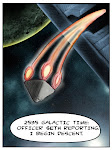




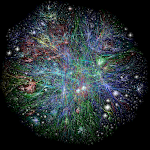
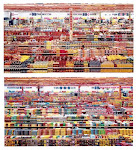

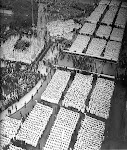
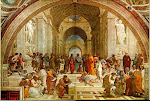


.gif)






6 comments:
When we -at least many of us- think of our Italian ancestors´stories, we cannot associate them with any sort of mithology. They were authentic and real human beings, who arrived to our country because of diverse causes. Despite the discomfort of the ocean voyage and the risk of the unknown soil, they came to Argentina encouraged by policies of immigration, which promised them a better life. It is necessary to understand that the thinkers of the National Organization -Mitre, Sarmiento and Avellaneda- had preferred different Europeans to settle in our country. Possibly that is why Italian immigrants (most of them from the South) were despised and discriminated by the upper classes. Conservative ideologies and natural tension between natives and immigrants contributed to create theories against the true ancestral Italians´purposes. Our grandparents came to Argentina without any intention of colonization. They only wanted to achieve their aims "invited" by the same people who later would reject them. They worked absolutely hard to be part of our development as a nation. We should admit that those old generations suffered a process of "argentinazation". They kept their own traditions, but they learnt many habits from Argentinean folk, such as having "mate".Although they conveyed Italian feelings to their descendants, they adopted a lot of customes of our land. It was very funny to listen to a "tano" singing a Tango or a Chacarera.
Conversely, cultural elements that we acquired by means of western films and series on TV, in which superheroes as Superman or Rambo symbolise the power and the "good" of the world, it can be defined as an efficient imposition ( not spontaneous) of foreign culture. This imposition obeys to the historical plan of imperialism that everybody knows perfectly.
If the concept of patriotism is related to strong feelings of love, respect and duty towards our country, we may say that our Italian ancestors were more patriotic towards our country than many creoles who bear double surnames and wish to have been born either in France, or in England or in The United States.
Susana Guaglianone (Humbly, another point of view)
Sorry, I´m correcting a grammar mistake that I´ve just noticed: ( last paragraph) "(...) Superman or Rambo(...)the "good" of the world, can be(...) The United States"
Thanks.
Susana Guaglianone (again)
Susana, I agree. But the fact that you refer to an Italian immigrant singing a tango give me the clue that you're referring to the waves of immigration of the 20th century. Bertoni studies the social tensions arising by the end of the 19th century, when the school system was not yet ready to deal with such a heterogeneous society and was in the way of creating strategies to both homogenise and 'argentinise' the immigrant groups.
Once again, thanks very much for your contributions.
When I refer to a "tano" singing a tango(or a chacarera), I´m referring to an Italian immigrant situated between the end of the 19th century and the first decades of the 20th century. It is said that Tango was born in Río de la Plata between 1850 and the very beginning of the 20th century. Tango grew up in the same lineal process as the Argentinean society composed of European immigrants. In the last years of 19th century and the first ones of the 20th century a big number of immigrants- mainly Italian- consolidated our society as
cosmopolitan. Those were years of "guapos",
"compadritos", related to tango and " conventillos", where they live all togeher, with other foreign people , and where characters as "cocoliche"arose. It was an Italian man who wanted to seem "compadrito",in the way that he spoke and in the way that he moved. The origin of Tango is intrinsically connected with Lunfardo. It is a sort of jargon spoken in Río de la Plata area and its etymology derives from Lombardo ( spoken by people from the South of Italy)(Lombardia, territoy of Italy).Therefore, Tango, Lunfardo, and the Italian presence may be considered the essence for "porteñaje". On the other hand, I understand the fears and reasons to homogenise the new society by means to the Education Law 1420, in 1884To be sincere, Tango is one of my huge passions and I try to investigate about it as much as I can, but I look up information from several points of view.( such as we saw in our two first classes when we analysed the different conceptions of History according to Elton and according to Jenkins)
Susana Guaglianone
It's OK Susana. You wrote "It was very funny to listen to a tano singing a Tango or a Chacarera." Perhaps this is the source of misunderstanding. Since only technologies from the 20th century allow us such an experience, I thought you were referring to a closer time.
Well, personally I have not listened to any Italian from the 19th century singing tango, but as we know,historiography, cinematography, phonographs, gramophones(record players), paintings, photography, etc are not the only resources to acquire information about events of the past. Apart from Drama plays, such as those performed in the Creole Circus (Hermanos Podesta),which are performed nowadays , and in which we can see "cocoliches" singing tango, there were and there are important sources of information(perhaps ones of the most significant),those are traditional narratives told in our families. I can believe every word from them, in the same way that I can believe every word from books. I have never listened to a "tano" from the 19th century singing tango but my grandpa has, so his older brothers. Once again, not everything depends on technologies.
Susana Guaglianone
Post a Comment